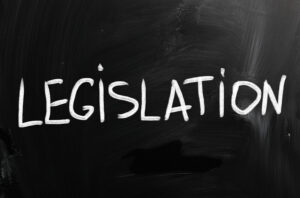Virginia Senate Rejects School Board Power Play

Yesterday’s news from the Virginia Senate was extraordinary. Half the Democrats joined with all the Republicans to reject the latest power play by Northern Virginia School Boards. The Senate voted 29-9 to allow parents to opt out of local mask mandates for students in public schools. The House of Delegates will almost surely endorse this law, and it will be signed by Governor Youngkin.
Are there any lessons to be learned?
The Rapidly Evolving Series of Events
It all began on Governor Glenn Youngkin’s inauguration day, January 15. In Executive Order No. 2, he rescinded prior mask mandates for students and provided for parental authority to make the decision. The order recited the ineffectiveness of cloth masks, the negative psychological effects of constant mask wearing, and the lack of statistically significant data showing that mask-wearing in schools reduced the risk of Covid-19.
The Fairfax County School Board refused to comply. The Superintendent of Schools, Scott Braband, stated on January 21 that “universal masking is essential.” On January 24, the school system joined with six other jurisdictions in a court challenge.
On February 4, a judge of the Arlington County Circuit Court granted a temporary injunction in the school boards’ favor, pending further proceedings. The basis of the ruling was a 2021 Virginia statute that provided for reopening the schools for in-person learning. It directed local school authorities to follow CDC guidance regarding Covid-safety measures. The Arlington judge noted that the 2021 statute was still in effect, and she ruled that the Governor could not override it by executive order. The Governor’s office stated that the decision would be appealed.
Supervisor Braband issued a statement on February 4, praising the decision and noting that compulsory mask wearing was a “critical safety measure.”
Then the remarkable occurred. On February 7, Senator Chap Petersen, a Democrat who represents Fairfax City and adjacent parts of the County, sent a scathing letter to Braband, stating “enough is enough.” He noted the absence of scientific evidence that mask wearing in schools has an appreciable benefit, and he challenged a statement by Braband that masking was “popular” in the community. He asserted that the masking requirement was ultimately a political decision … a virtue-signaling way of saying, “I care about others.” Petersen ended by saying that he intended to support bipartisan legislation to end the mask mandate.
Yesterday, Petersen followed through with his pledge. He proposed an amendment to a pending bill regarding in-person instruction (Senate Bill 739). The amendment states that “notwithstanding any other provision of any law or any regulation, rule, or policy implemented by a school board …, the parent of any child … may elect for such child not to wear a mask while on school property. A parent making such an election shall not be required to provide a reason or any certification of the child’s health or education status. No student shall suffer any adverse disciplinary or academic consequences as a result of this parental election.”
As noted above, the bill passed the Senate yesterday by a bipartisan vote of 29-9.
Significance of the Action
Yesterday’s developments demonstrate that bipartisan actions are possible and that the school boards are not omnipotent. But how does this square with the decision a few days ago by a Virginia Senate committee to kill a bill directed at Critical Race Theory? That bill was defeated by a straight party-line vote.
The difference, I believe, is the difference between the two measures in the degree of public pressure exerted on political officials. Opposition to school mask mandates has been mushrooming throughout the country. The issue has been discussed in nightly news broadcasts and in front-page newspapers stories. Politicians have been getting the message and have begun rolling back the mandates in both Republican and Democrat-majority jurisdictions (e.g., New Jersey). The science hasn’t suddenly changed, but the politics has.
In contrast, what is going on in the classrooms has far less visibility, and parental knowledge is much lower. While some people allege that the tenets of Critical Race Theory are being taught, activists on the other side adamantly deny the claim, and most of us don’t know where the truth lies. Awareness is gradually increasing, but this issue has not yet achieved the same degree of attention as school masking requirements.
Conclusion: Concerned citizens need to do whatever they can to increase awareness and concern about what is happening in our public school system.


The party of science is starting to read the science
Wow. That is very significant!
You say that democrats are unwilling to kill a bill directed at CRT, because the political pressure to do so is not there yet. This of course is true.
You maintain however that the pressure is not there because parents don’t realize it is being taught to their children. I think this is only partially true. I think that there are many intelligent, caring, well-meaning parents who know it IS being taught, but don’t realize how toxic, inaccurate, and ultimately damaging to children of color. It is also bad for race relations in this country. Martin Luther King would have fought it, of that I am certain.
There have been problems in how our history has been taught regarding the contributions of blacks in this country. However, CRT is not the solution! As you have pointed out, it is full of untruths and gives black children a victim mindset, which is harmful to them.
That is where this blog comes in – to hopefully open peoples eyes to what CRT really is.
I hope your readers encourage more people to subscribe.